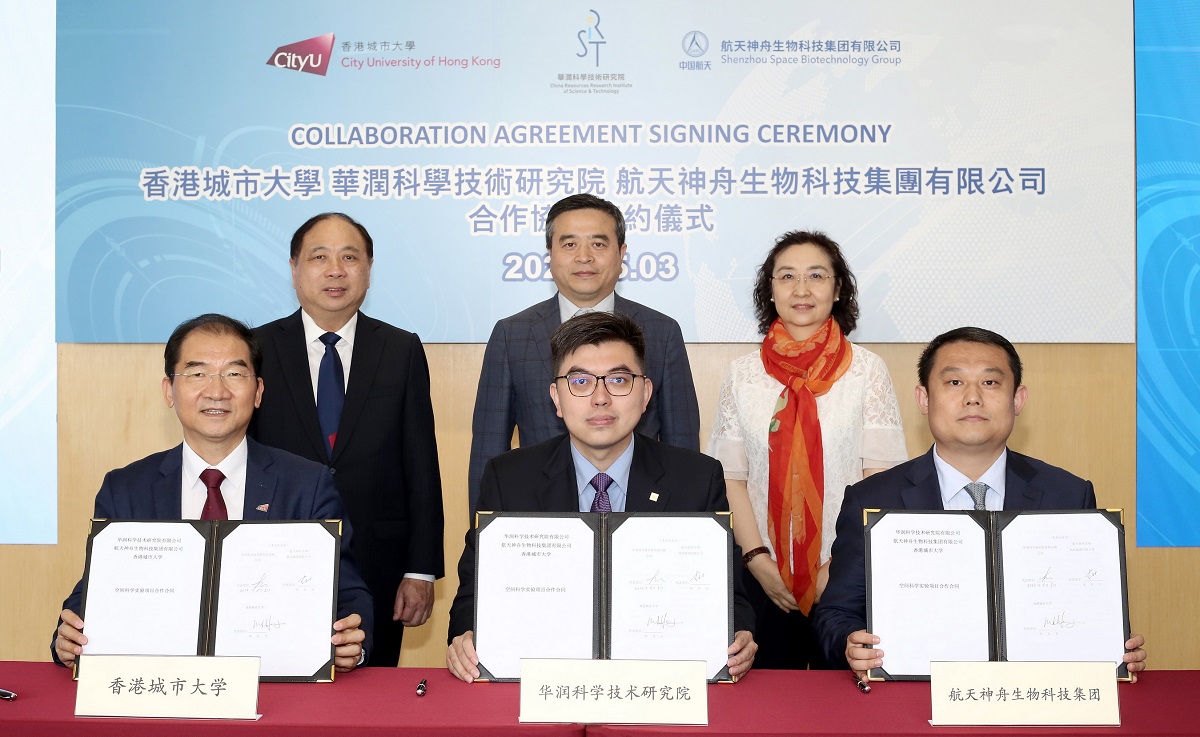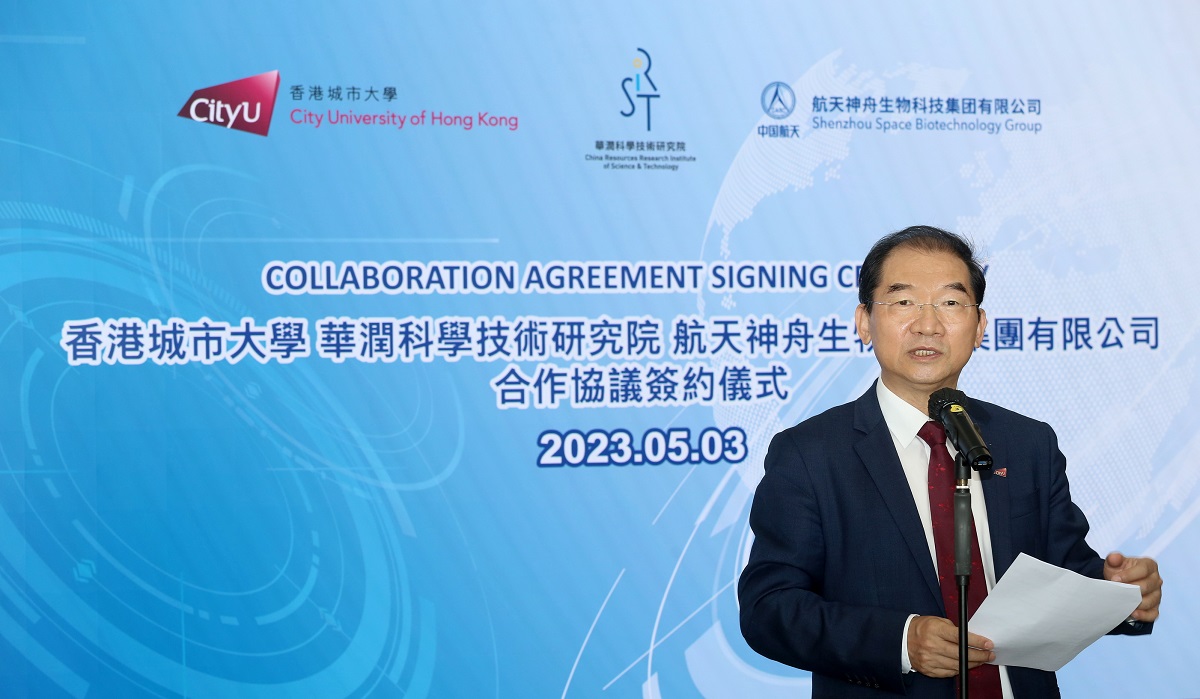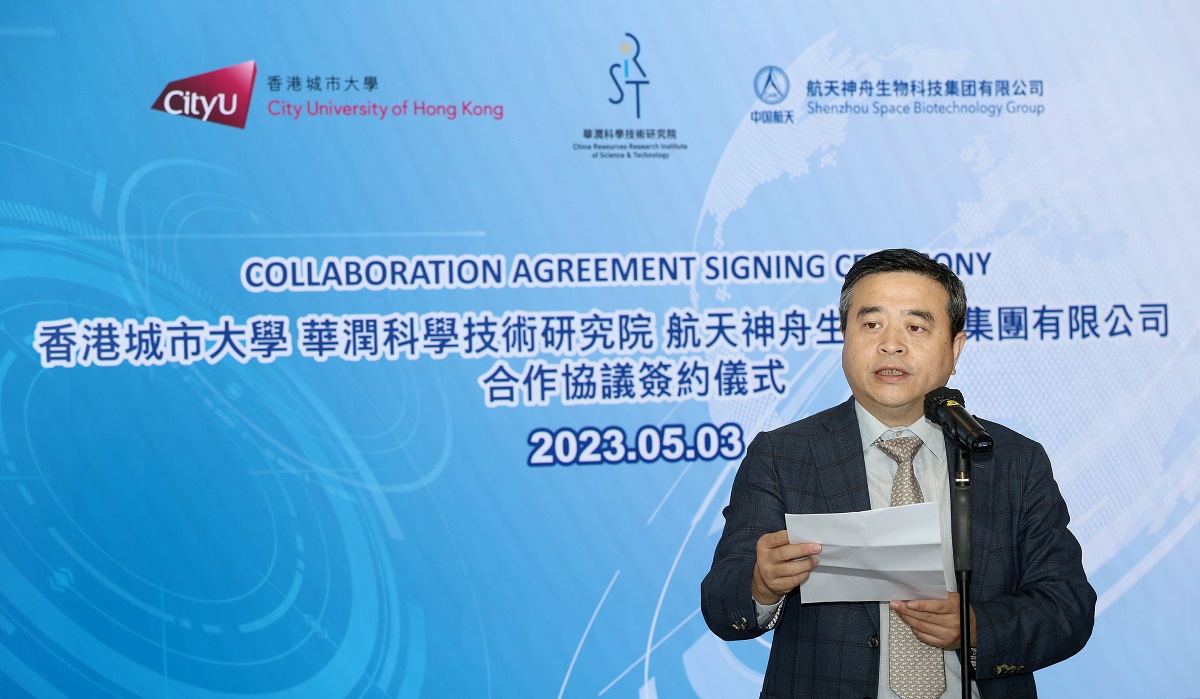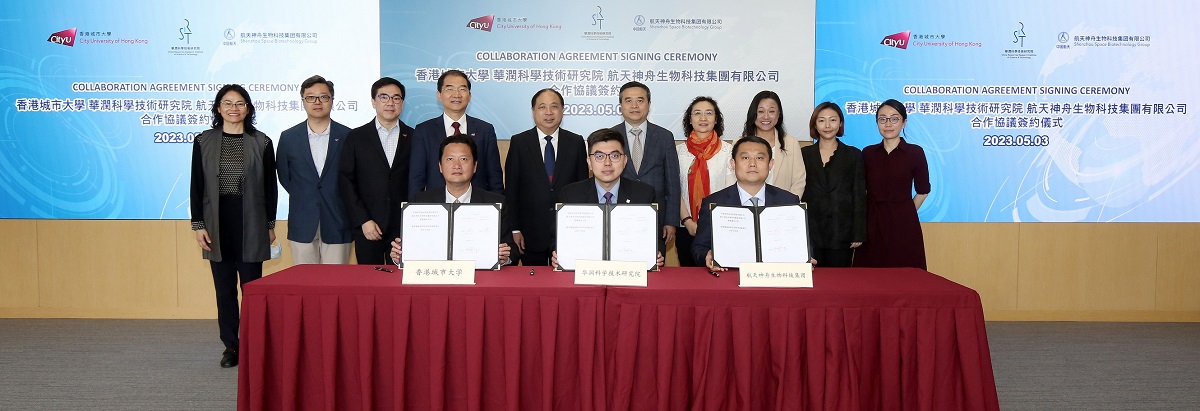CityU signs outer space scientific research agreement with China Resources Research Institute of Science and Technology and Shenzhou Space Biotechnology Group
City University of Hong Kong (CityU) signed a collaboration agreement today (3 May) with the China Resources Research Institute of Science and Technology (CRRIST) and Shenzhou Space Biotechnology Group (SBG) to commence joint scientific experiments in outer space. With the support of the CRRIST and SBG, which will provide space payloads technology, tests for scientific projects initiated by CityU will be conducted at the China Space Station. Test samples of new cartilage repair materials will be sent to the space station, where the effectiveness of the materials will be tested, marking the first in a series of CityU space experiments.

From front left: Professor Michael Yang Mengsu, CityU Vice-President (Research and Technology); Mr Li Nan, Vice Dean of CRRIST; and Mr Zhi Zhe, General Manager of SBG. From back left: Dr Raymond Leung, CityU Council Member; Mr Chen Ying, Assistant General Manager of China Resources Group, and Chairman and CEO of China Resources Enterprise Limited, and Ms Zhou Hong, Chairwoman of SBG.
Under the agreement, SBG will conduct experiments and collect data for CityU projects that are suitable for testing in outer space. Upon completion of the tests, relevant samples will be returned to CityU for further study. During the five-year collaboration period, all parties will fully utilise their strengths and resources to further enhance national scientific research to benefit the nation and the well-being of all mankind.
The agreement was signed by Mr Li Nan, Vice Dean of the CRRIST, Mr Zhi Zhe, General Manager of SBG, and Professor Michael Yang Mengsu, CityU Vice-President (Research and Technology). Dr Raymond Leung, CityU Council Member, Mr Chen Ying, Assistant General Manager of China Resources Group, and Chairman and CEO of China Resources Enterprise Limited (CRE), and Ms Zhou Hong, Chairwoman of SBG witnessed the signing.

In his speech, Professor Yang said, “This collaboration with the aerospace industry will allow CityU's scientific research to be extended into outer space, which will widen the development of the University’s science and innovation initiatives and their applications. This is certainly a milestone in CityU's journey in scientific research and development. The aerospace industry is one of the country's key industries for development. Through this collaboration, CityU will contribute in terms of high-quality scientific research to the aerospace industry, the country and Hong Kong society.”
CityU also sincerely thanked the China Manned Space Agency for its strong support to this collaboration.

Mr Chen Ying said, “The collaboration between CRRIST, SBG and CityU in the field of space science experiments will connect domestic and foreign space technology exchange and joint research, accelerate the transformation of space experiments to practical applications, and drive industrial innovation and development. In the future, CRE and CRRIST will continue to create innovative cooperation models to connect industrial operations and technology innovations, integrate different technologies into solutions and products through cross-disciplinary cooperation, and actively promote the transformation of scientific research achievements and industry–academia–research institute collaboration, thus continuously energising the development of Hong Kong's technology innovation industry!”

The first project under this collaboration agreement is the testing of a joint repair material, called ‘decellularised tissue-engineering cartilage draft’ (dLhCG), which was developed by a research team led by Professor Dongan Wang, Acting Head of the Department of Biomedical Engineering, of CityU. dLhCG is the first joint cartilage repair material based on type II collagen. After the samples are sent into outer space, the biomaterial will undergo six months of microgravity and radiation treatment inside and outside the space station. The project aims to investigate the potential impact of microgravity and radiation in outer space on the repair efficacy of dLhCG. Professor Wang said he believes that this experiment will produce new insights into the development of biomedical materials and collaboration with the space station.